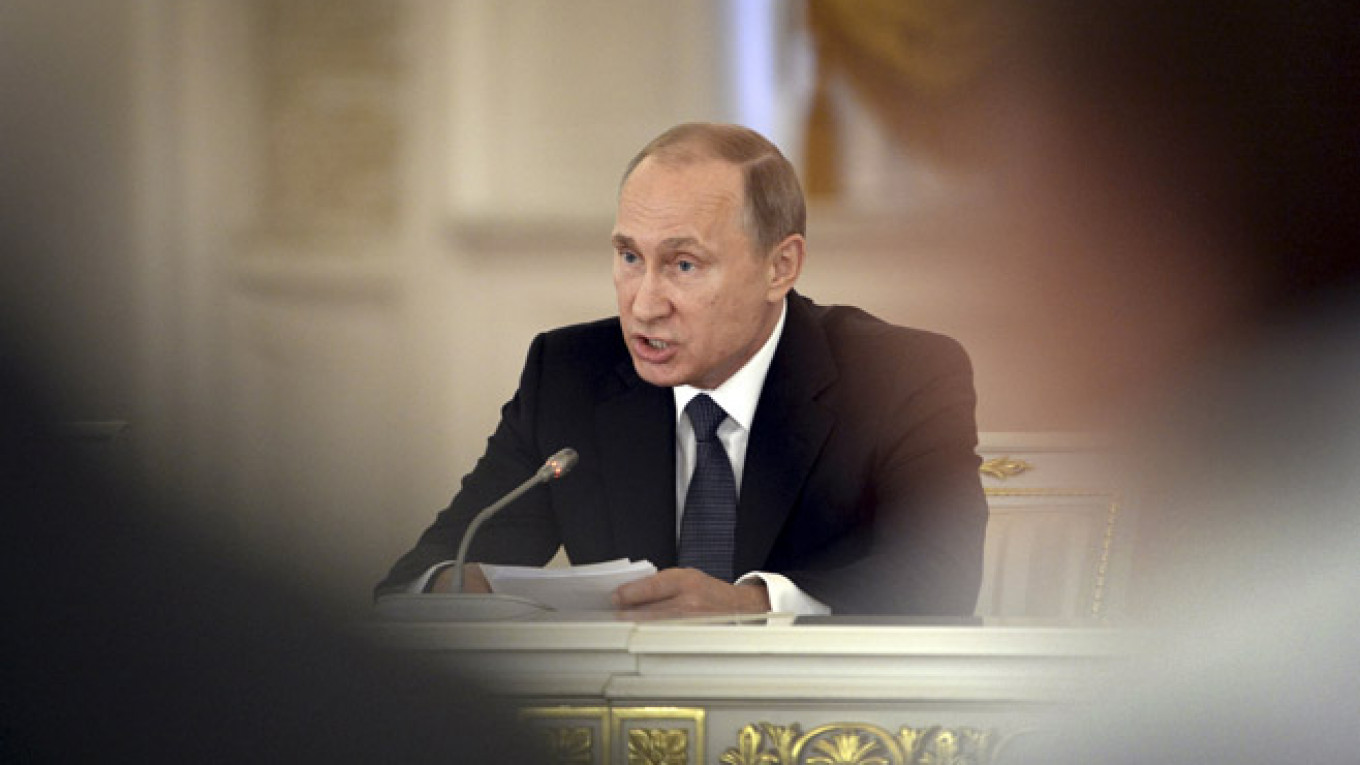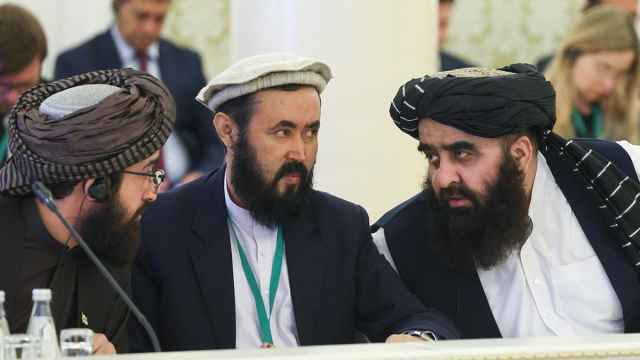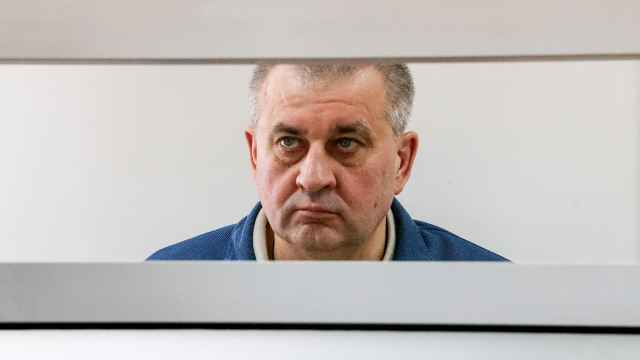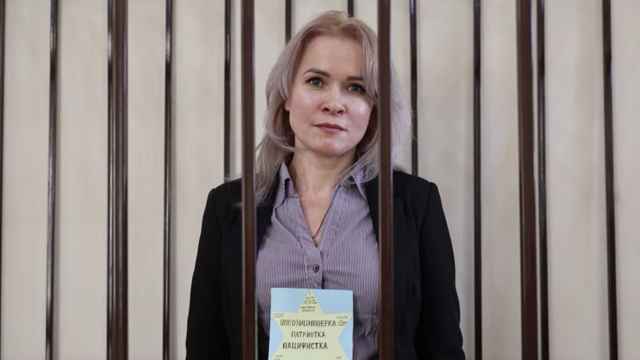President Vladimir Putin advocated the preservation of the Russian language on Tuesday, criticizing the use of foreign-based words online and on television.
Speaking at a joint meeting of the Council for Interethnic Relations and the Council for Russian Language, Putin said that there are evident problems in the overall state of the Russian language.
He urged the imperative of striking a "balance between preserving traditional values and identity on the one hand and avoiding isolation from the global cultural processes on the other."
The overall language environment "is now formed primarily by the media, the Internet and television, where language norms and elementary grammar rules are being ignored ever more frequently and linguistic borrowings from other languages are used excessively, often without any obvious need," Putin told several dozen government officials, writers and education managers, who participated in the meeting.
In order to improve the situation, the government has launched a number of initiatives, including by declaring this year Russia's Year of Literature.
In an obvious referral to Ukraine and the Baltic states, Putin said that "other countries … ignore or limit the right of significantly large ethnic groups to use their native language, [in order] to conduct a tough, aggressive policy of linguistic and cultural assimilation."
"We see what this may lead to: the division of society into 'full-fledged' citizens and 'inferior' ones, into 'citizens' and 'non-citizens' and even to outright tragic internal conflicts," Putin warned.
According to Putin, Russia is home to 193 ethnic groups and nationalities that speak almost 300 languages and dialects. Despite the country's linguistic diversity, more than 96 percent of people in Russia speak Russian, he said.
Many Russian regions have several state languages. Putin specifically mentioned the republic of Crimea, which was annexed by Russia last year and since then has had three official state languages — Russian, Ukrainian and Crimean Tatar.
Russia will spend 20.5 million rubles to educate 1,500 Russian language teachers in Crimea, RIA Novosti reported on Tuesday.
Contact the author at i.nechepurenko@imedia.ru
A Message from The Moscow Times:
Dear readers,
We are facing unprecedented challenges. Russia's Prosecutor General's Office has designated The Moscow Times as an "undesirable" organization, criminalizing our work and putting our staff at risk of prosecution. This follows our earlier unjust labeling as a "foreign agent."
These actions are direct attempts to silence independent journalism in Russia. The authorities claim our work "discredits the decisions of the Russian leadership." We see things differently: we strive to provide accurate, unbiased reporting on Russia.
We, the journalists of The Moscow Times, refuse to be silenced. But to continue our work, we need your help.
Your support, no matter how small, makes a world of difference. If you can, please support us monthly starting from just $2. It's quick to set up, and every contribution makes a significant impact.
By supporting The Moscow Times, you're defending open, independent journalism in the face of repression. Thank you for standing with us.
Remind me later.






